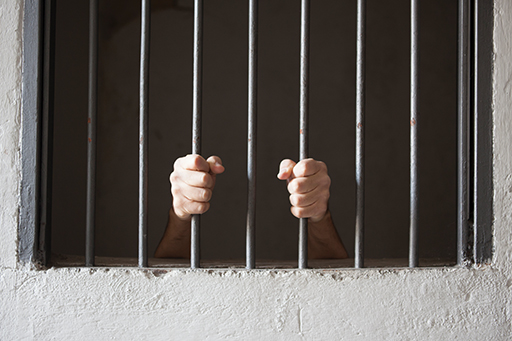1.3 Defining crime
In the crimes and punishments listed in Table 1 you may have noticed that all of the offences carried fines or the possibility of imprisonment. This is because these are all activities that have been made illegal through the creation of laws (although you could argue that these aren’t always enforced), in this case in the UK. That is, a crime is only a crime because it is defined as illegal by the criminal law.
There are other ways to think about the question of what crime is and how it should be defined in society, however. For example, think about the following questions:
- Does the law cover all acts that are harmful to public welfare? For example, what about the problem of pollution levels in industrial areas?
- Does it include disastrous economic and social decisions taken by the government? For example, Iceland prosecuted several bankers as a result of the 2008 Global financial crisis, but few other countries did so.
- Is it always against the law to take another life? What about conduct in wartime, in military or policing service or assisting euthanasia?
Activity 3 Is it a crime?
Answer true or false to the questions below.
(This list was abridged from one compiled by Assistant Professor of Law, at Nottingham University, Christopher Sargeant.)
a.
True
b.
False
The correct answer is a.
Discussion
According to the Plant Health (England) Order 2015, art 19(6), it is illegal to bring any potatoes which are grown or suspected to have been grown in Poland into England unless written notification has been provided to an inspector at least two days prior to the intended date of their arrival. This law was introduced in 2004 to respond to a series of serious ring rot outbreaks in Poland which were adversely affecting their potato crops.
a.
True
b.
False
The correct answer is a.
Discussion
According to the Licensing Act 1872, s12, ‘every person found drunk … on any licensed premises, shall be liable to a penalty.’
a.
True
b.
False
The correct answer is a.
Discussion
By virtue of the Metropolitan Police Act 1839, s54, it is an offence for any person to roll or carry any cask, tub, hoop, or wheel, or any ladder, plank, pole, showboard, or placard, upon any footway, except for the purpose of loading or unloading any cart or carriage, or of crossing the footway within the London Metropolitan Police District.
a.
True
b.
False
The correct answer is a.
Discussion
By virtue of the Salmon Act 1986, s32, it is illegal for a person to receive a fish, to undertake or assist in its retention, removal or disposal, or to arrange to do so, if he believes, or it would be reasonable for him to suspect, that an offence is being committed by taking, killing, landing, or selling that fish, either in England and Wales or in Scotland.
a.
True
b.
False
The correct answer is a.
Discussion
Under the Transport for London Railway Bye-Laws, Bye-Law 1, any person directed to queue by an authorised person or a sign must join the end of the queue and obey reasonable instructions by any authorised person regulating the queue within the Transport for London Network.
Were you surprised by some of the answers to the above questions? What is deemed to be a crime can change over time and in different legal jurisdictions,

